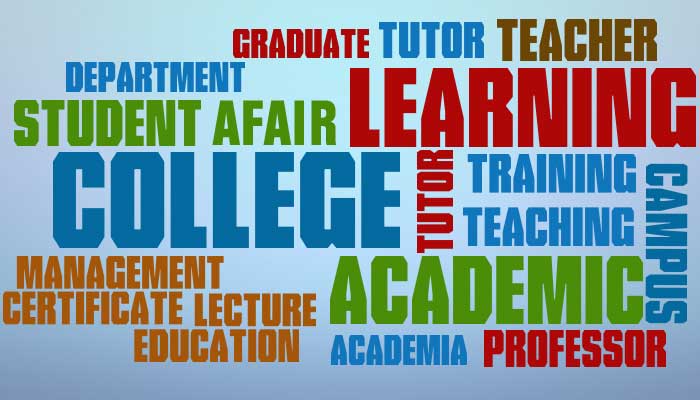 A common goal of American higher education in the 21st century is to prepare students for the professional, civic, and personal challenges of adult life – Baxter Magolda & King, 2004.
A common goal of American higher education in the 21st century is to prepare students for the professional, civic, and personal challenges of adult life – Baxter Magolda & King, 2004.
When a student begins his college, he/she has very high hopes and ambitions from the college. The students expects from the colleges to deliver on their promises and a return on their investments. Now, it becomes the responsibility of the academic and student affairs to deliver on the promises. Besides academic learning, the students expect skill development, career preparation, and development of interpersonal skills that lead to social and personal responsibility etc. from the higher education. The responsibility of delivering on these things falls on both the student and academic affairs. However, often student affairs and academic affairs are busy pointing fingers at each other and passing the buck on each other in order to prove themselves right.
Student affairs should ensure that their programs complement the learning and teaching that happens in the classroom, whereas in many campuses there is no relationship or interaction between student affairs and the faculty. Therefore, student affairs have no knowledge of what the students go through in their classrooms. Learning can’t be complemented unless student affairs is aware of what goes on in the classroom and what students expect to learn.
The problem is compounded when faculty members have unclear and unrealistic opinions about the activities and programs in student affairs. Unfortunately, in some universities, the discussion over learning assessments has stopped serious efforts to actually measure learning. There seems to be a considerable disdain for metrics in this area. Faculty members who do not consider the development of learning outcomes beyond the discipline and proclaim that addressing learning outcomes will impair teaching objectives are doing a huge disservice to students and their parents.
There is Hope!
The good news is that we can see some ray of hope on the horizon. At the University of Puget Sound, the retention task force consists of faculty members and student affairs professionals, and reportedly, the partnership has increased the admiration on both sides. The student affairs professionals at the University of the Pacific are inspired to teach academic courses, and most do – and not just in graduate programs in education. The faculty members now are informed supporters of student affairs, and student affairs have more understanding of the effect the faculty has on a student’s life.
In conclusion, it is imperative that student affairs and faculty work and collaborate with each other to deliver a wholesome learning experience to students, and by doing so, not only improving retention and student success, but preparing them for success in their personal and professional lives.
To get more detailed insights, attend this session on creating high-impact partnerships between academic and student affairs. This webinar is presented by expert speaker Dr. Adam Peck, who has been in the forefront of a national movement to measure and design learning experiences that aims at building career expertise into a broad variety of co-curricular experiences. In this session, he will discuss the ideological differences that prevent academic and student affairs from working together effectively, and show how a new focus on career readiness can create opportunities for powerful partnerships to take place.



